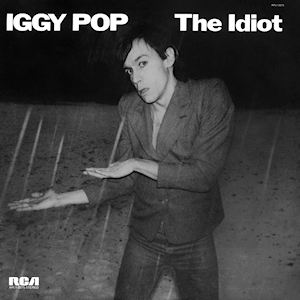
The Idiot is the debut studio album by American musician Iggy Pop, released on March 18, 1977 through RCA Records. It was produced by David Bowie and primarily recorded at the Château d'Hérouville in Hérouville, France. The album followed the break-up of Pop's band the Stooges in 1974 and a period of drug addiction for both Pop and Bowie, after which the two moved to Europe in an effort to kick their addictions.

"Heroes" is the 12th studio album by the English musician David Bowie, released on 14 October 1977 through RCA Records. Recorded in collaboration with musician Brian Eno and producer Tony Visconti, it was the second release of his Berlin Trilogy, following Low, released in January the same year, and the only one wholly recorded in Berlin. Sessions took place in mid-1977 after Bowie completed work on Iggy Pop's second solo album Lust for Life. Much of the same personnel from Low returned for "Heroes", augmented by King Crimson guitarist Robert Fripp.

Lodger is the 13th studio album by the English musician David Bowie, released on 25 May 1979 through RCA Records. Recorded in collaboration with musician Brian Eno and producer Tony Visconti, it was the final release of his Berlin Trilogy, following Low and "Heroes". Sessions took place in Switzerland in September 1978 during a break in the Isolar II world tour, and in New York City in March 1979 at the tour's end. Most of the same personnel from prior releases returned, and future King Crimson guitarist Adrian Belew joined from the tour. The sessions saw the use of techniques inspired by Eno's Oblique Strategies cards, such as having the musicians swap instruments and play old songs backwards.
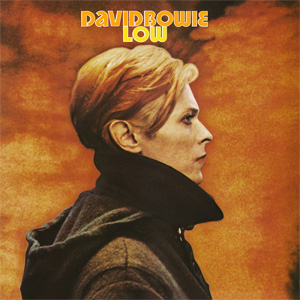
Low is the eleventh studio album by the English musician David Bowie, released on 14 January 1977 through RCA Records. The first of three collaborations with producer Tony Visconti and musician Brian Eno that became known as the Berlin Trilogy, the project originated following Bowie's move to France in 1976 with his friend Iggy Pop to rid themselves of their drug addictions. There, Bowie produced and co-wrote Pop's debut studio album, The Idiot, featuring sounds the former would explore on his next record. After completing The Idiot, sessions for Low began at Hérouville's Château d'Hérouville in September 1976 and ended in October at Hansa Studios in West Berlin, where Bowie and Pop had relocated.

Carlos Alomar is a Puerto Rican guitarist. He is best known for his work with David Bowie from the mid-1970s to the early 2000s, having played on more Bowie albums than any other musician.
"Warszawa" is a mostly instrumental song by David Bowie and Brian Eno originally released in 1977 on the album Low. The band Joy Division was initially called Warsaw as a reference to this song.
"Joe the Lion" is a song by David Bowie in 1977 for the album "Heroes". It was produced by Bowie and Tony Visconti and features lead guitar by Robert Fripp.
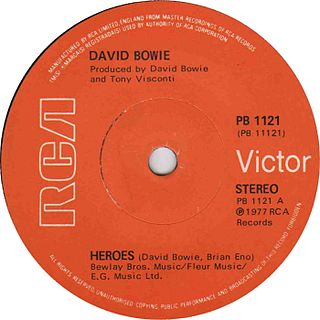
"'Heroes'" is a song by the English musician David Bowie from his 12th studio album of the same name. Co-written by Bowie and Brian Eno and co-produced by Bowie and Tony Visconti, the song was recorded in mid-1977 at Hansa Studio 2 in West Berlin. Using a G–D chord progression, the backing track was recorded fully before lyrics were written; Bowie and Eno added synthesiser overdubs while Robert Fripp contributed guitar. To record the vocal, Visconti devised a "multi-latch" system, wherein three microphones were placed at different distances from Bowie and would open when he sang loud enough. Like other album tracks, he improvised lyrics while standing at the microphone.
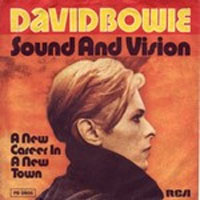
"Sound and Vision" is a song by the English musician David Bowie. It was released in January 1977 by RCA Records on side one of his 11th studio album Low. RCA later chose it as the first single from the album. Co-produced by Bowie and Tony Visconti, the song was recorded at the Château d'Hérouville in Hérouville, France, in September 1976, and completed at Hansa Studios in West Berlin in October and November. The song began as a simple G major chord progression that Bowie gave to the backing musicians, writing and recording his vocals afterward. It features backing vocals from Brian Eno and Visconti's then-wife Mary Hopkin.
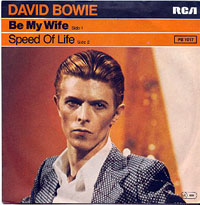
"Be My Wife" is a song by English musician David Bowie. It was the second single from Low (1977), released on 17 June 1977.

"Beauty and the Beast" is a song by David Bowie, the first track on his 1977 album "Heroes". It was issued as the second single from the album in January 1978, becoming a minor UK hit, peaking at No. 39 on the UK Singles Chart.

"Breaking Glass" is a song by the English singer-songwriter David Bowie. It was co-written by Bowie, bassist George Murray and drummer Dennis Davis in September 1976. Originally a track on Bowie's 1977 album Low, a reworked version of the song was a regular on the Isolar II Tour. A live version from that tour was used as the lead track on a 7-inch EP to promote his second live album, Stage in 1978. The EP reached number 54 on the UK Singles Chart in December 1978.

"Scary Monsters (and Super Creeps)" is a song by English singer-songwriter David Bowie, released as the title track of his 1980 album Scary Monsters (and Super Creeps). It was also issued as the third single from that album in January 1981. Coming as it did in the wake of two earlier singles from Scary Monsters, "Ashes to Ashes" in August 1980 and "Fashion" in October the same year, NME critics Roy Carr and Charles Shaar Murray labelled its release another instance "in the fine old tradition of milking albums for as much as they could possibly be worth". The song was subsequently performed on a number of Bowie tours.
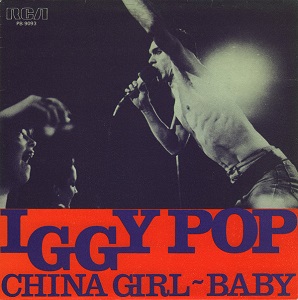
"China Girl" is a song written by Iggy Pop and David Bowie in 1976, and first released by Pop on his debut solo album, The Idiot (1977). Inspired by an affair Pop had with a Vietnamese woman, the lyrics tell a story of unrequited love for the protagonist's Asian girlfriend, realizing by the end that his Western influences are corrupting her. Like the rest of The Idiot, Bowie wrote the music and Pop improvised the lyrics while standing at the microphone. The song was released as a single in May 1977 and failed to chart.

The Berlin Trilogy consists of three studio albums by English musician David Bowie: Low, "Heroes" and Lodger (1979). Bowie recorded the albums in collaboration with English musician Brian Eno and American producer Tony Visconti. The trilogy originated following Bowie's move from Los Angeles to Europe with American singer Iggy Pop to rid themselves of worsening drug addiction. Influences included the German krautrock scene and the recent ambient releases of Eno.

"Speed of Life" is the first instrumental by David Bowie. It is the opening track for his album Low from 1977.
"Always Crashing in the Same Car" is a song by David Bowie from his album Low from 1977.
"Subterraneans" is a song by David Bowie, the closing track of his 1977 album Low. As with most of Side 2, "Subterraneans" is mostly instrumental, with brief, obscure lyrics sung near the song's end.
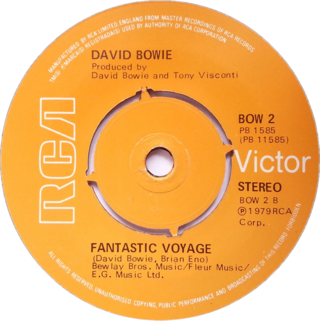
"Fantastic Voyage" is a song written by David Bowie and Brian Eno for the 1979 album Lodger. It has almost exactly the same chord sequence as "Boys Keep Swinging", from the same album. It has also appeared as the B-side to the "Boys Keep Swinging" and "Peace on Earth/Little Drummer Boy" singles, and the US edition of "D.J.".

"Look Back in Anger" is a song written by English artists David Bowie and Brian Eno for the album Lodger (1979). It concerns "a tatty 'Angel of Death'", and features a guitar solo by Carlos Alomar.














